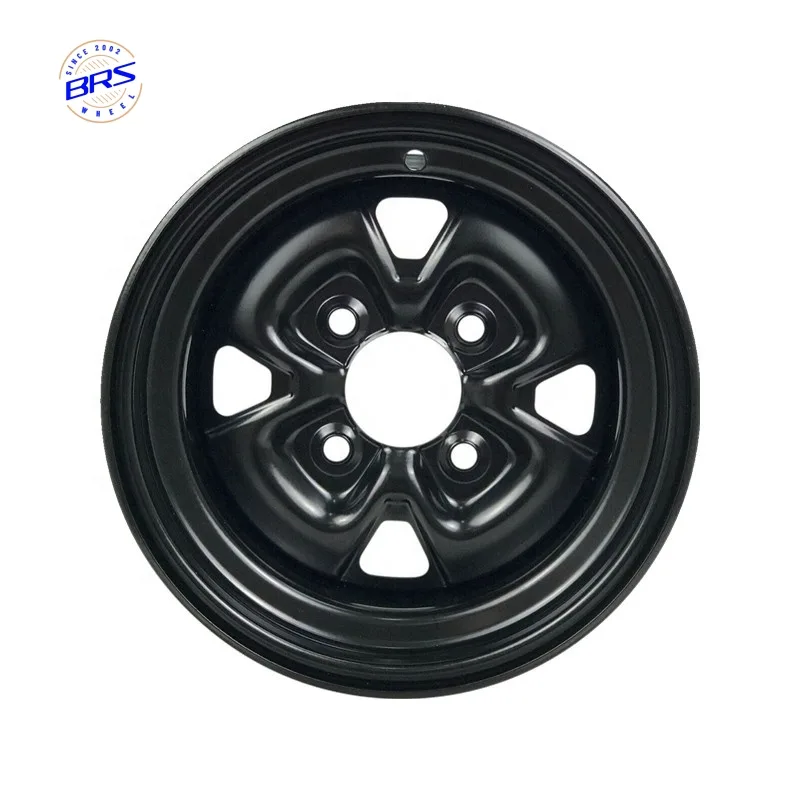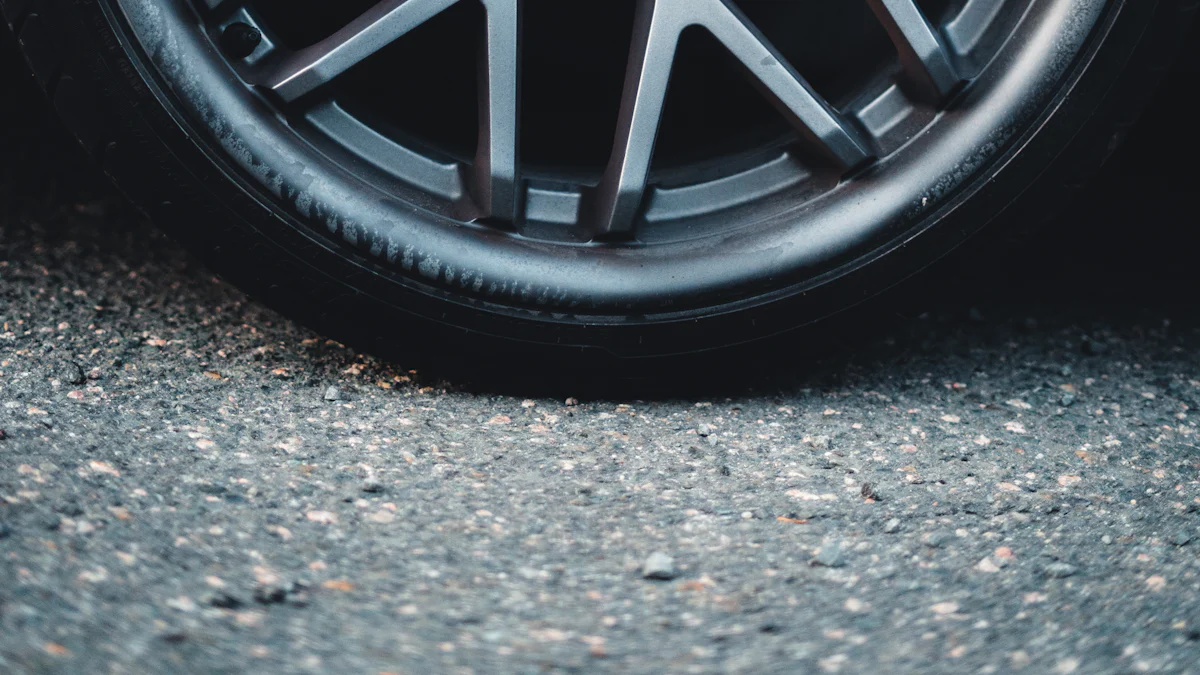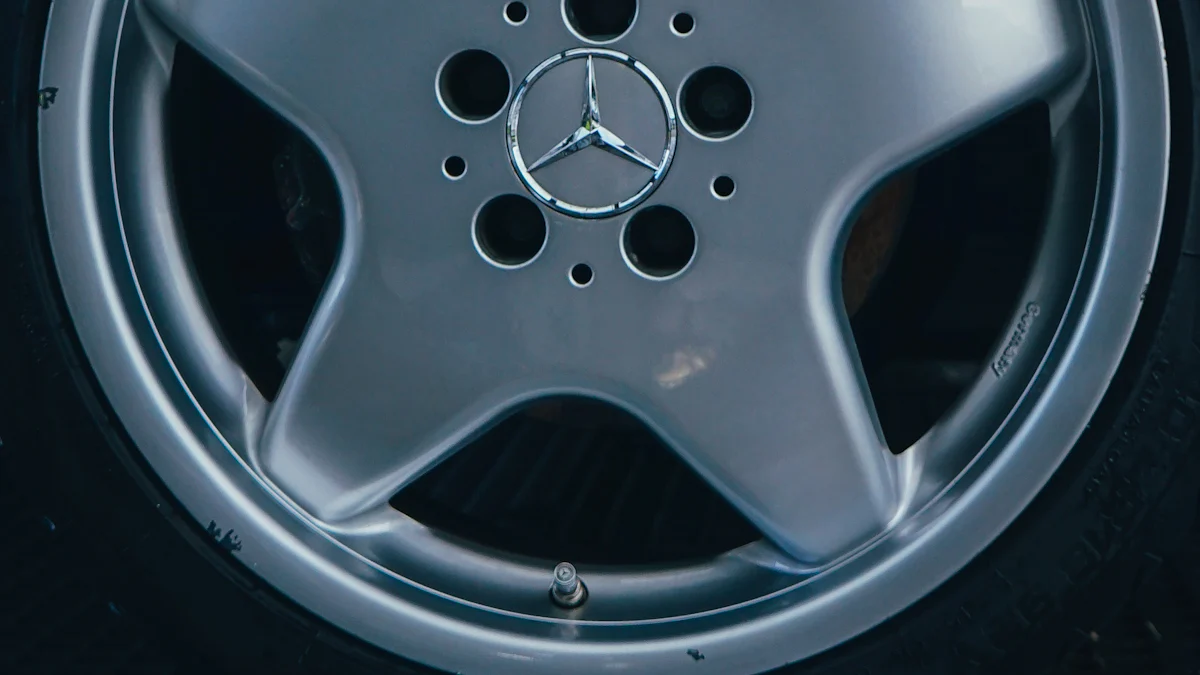
Choosing the right 17×7 steel wheel for your car can feel overwhelming, but it doesn’t have to be. These wheels stand out for their strength and practicality, making them a reliable choice for various driving conditions. Their durability ensures they can handle tough impacts without cracking, and bending them requires significant force. Steel wheels also offer a functional, no-frills design that suits entry-level vehicles and older cars. By focusing on compatibility with your car’s specifications, you ensure safety and optimal performance while enjoying the benefits of a sturdy and cost-effective option.
Key Takeaways
- Ensure compatibility by checking your car’s bolt pattern, offset, and size to guarantee a secure fit and optimal performance.
- Choose steel wheels for their durability; they resist damage from potholes and rough terrain, making them ideal for winter driving and off-road adventures.
- Consider the cost-effectiveness of steel wheels; they are generally more affordable than alloy wheels and require less maintenance over time.
- Utilize accessories like hubcaps to enhance the appearance of steel wheels while maintaining their practicality and durability.
- Regular maintenance, including cleaning and repainting, can prevent rust and extend the lifespan of your steel wheels.
- For seasonal use, keep a separate set of steel wheels for winter tires to improve performance and save on wear and tear.
- Research reputable brands like BRS Auto Parts to ensure you are purchasing high-quality steel wheels that meet safety standards.
Ensuring Compatibility with Your 17×7 Steel Wheel
When choosing a 17×7 steel wheel, ensuring compatibility with your car is essential. A proper fit guarantees safety, performance, and a smooth driving experience. Let’s break down the key factors you need to check.
Understanding Bolt Patterns
The bolt pattern is one of the most critical aspects of wheel compatibility. It refers to the number of lug holes on the wheel and the diameter of the circle they form. For example, a common bolt pattern for 17×7 steel wheels is 5×114.3, which means the wheel has five lug holes arranged in a circle with a 114.3mm diameter. If the bolt pattern doesn’t match your car’s specifications, the wheel simply won’t fit.
To find your car’s bolt pattern, check your owner’s manual or consult a trusted mechanic. Many vehicles, including sedans and SUVs, use the 5×114.3 bolt pattern, but it’s always best to confirm. Choosing a wheel with the correct bolt pattern ensures a secure fit and prevents potential issues like wobbling or uneven wear.
Checking Wheel Offset and Backspacing
Offset and backspacing determine how the wheel sits in relation to your car’s suspension and fenders. The offset is the distance between the wheel’s mounting surface and its centerline. It can be positive, negative, or zero. A positive offset means the mounting surface is closer to the front of the wheel, while a negative offset places it closer to the back.
Backspacing, on the other hand, measures the distance from the wheel’s mounting surface to the back edge of the wheel. Both offset and backspacing affect how your car handles and whether the wheels will rub against the fenders or suspension components.
For most vehicles, a moderate positive offset works well with 17×7 steel wheels. Always verify these measurements to avoid clearance issues. If you’re unsure, consult a professional or use online tools that match wheels to your car’s make and model.
Verifying Size and Fit
The size of the wheel must align with your car’s specifications. A 17×7 steel wheel has a diameter of 17 inches and a width of 7 inches. While this size is versatile and fits many vehicles, you should double-check your car’s requirements. Installing a wheel that’s too wide or narrow can impact handling and tire wear.
Additionally, consider the type of lug nuts your car requires. Some vehicles need specific lug nuts to ensure a secure fit. Don’t overlook this detail, as it plays a crucial role in keeping your wheels safely attached.
Lastly, think about any additional features like hubcaps or center caps. These accessories not only enhance the look of your wheels but also protect the lug nuts and wheel hub from dirt and debris. Make sure the 17×7 steel wheel you choose is compatible with these add-ons if they’re part of your setup.
Material and Durability of 17×7 Steel Wheels
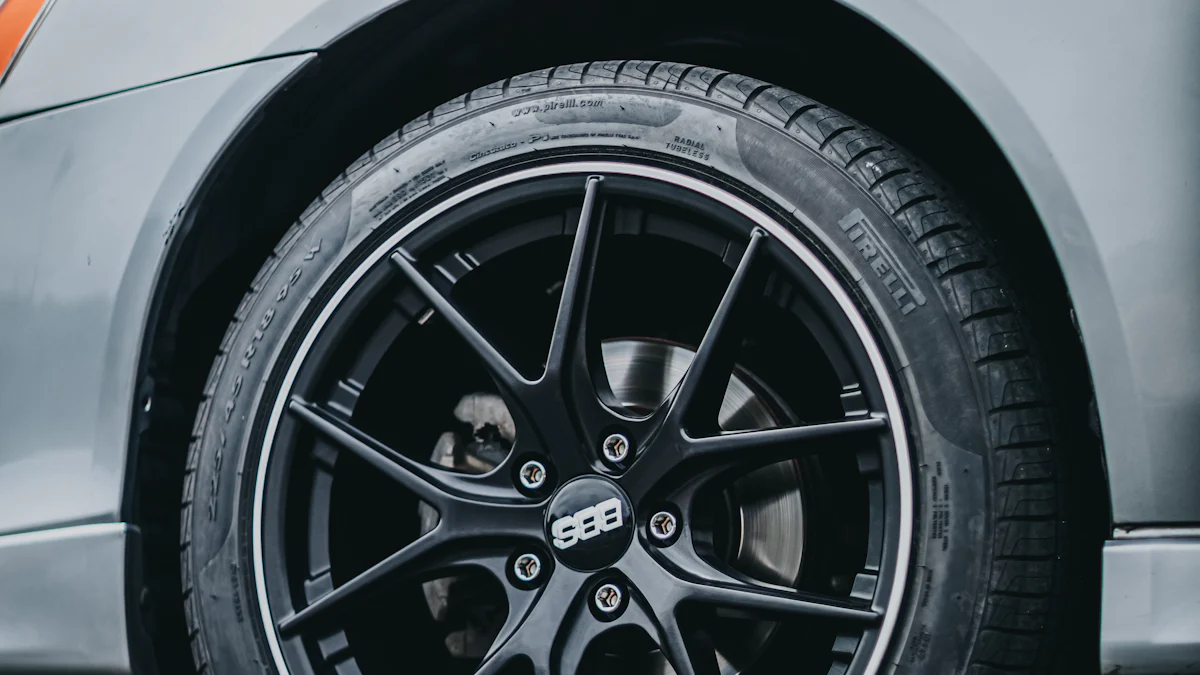
When it comes to choosing the right wheels for your car, understanding the material and durability of a 17×7 steel wheel is crucial. Steel wheels have earned their reputation for being tough, reliable, and cost-effective. Let’s dive into why they stand out and how they compare to other options like alloy wheels.
Benefits of Steel Wheels
Steel wheels are built to last. Their robust construction makes them highly resistant to damage from potholes, curbs, and other road hazards. Unlike other materials, steel doesn’t crack easily. Even in the rare case of damage, steel wheels tend to bend rather than break, which means you can often repair them instead of replacing them entirely. This durability makes steel wheels an excellent choice for harsh driving conditions, such as off-road adventures or winter roads covered in ice and snow.
Another major advantage is affordability. Steel wheels are generally less expensive than alloy wheels. The lower cost comes from the simpler manufacturing process and the use of less expensive materials. If you’re looking for a budget-friendly option without compromising on strength, steel wheels are hard to beat.
Steel wheels also offer a practical, no-nonsense design. While they may not have the flashy appearance of alloy wheels, their simplicity makes them easy to maintain. Dirt, grime, and brake dust are less noticeable on steel wheels, and cleaning them is straightforward. For drivers who prioritize function over form, steel wheels are a smart choice.
Comparing Steel Wheels to Alloy Wheels
When comparing steel wheels to alloy wheels, the differences become clear. Steel wheels are stronger and more durable. They can handle impacts that might cause alloy wheels to crack. This makes steel wheels a safer option for drivers who frequently encounter rough terrain or poor road conditions. Alloy wheels, on the other hand, are lighter and often more visually appealing. However, their lighter weight comes at the cost of reduced strength and higher susceptibility to damage.
Steel wheels also require less maintenance. Alloy wheels often need special care to prevent corrosion or scratches, while steel wheels are more forgiving. If you’re someone who values low-maintenance solutions, steel wheels are a better fit for your needs.
In terms of cost, steel wheels win again. Alloy wheels are typically more expensive due to their complex manufacturing process and premium materials. If you’re on a budget but still want a reliable and durable option, steel wheels are the way to go.
Quick Tip: If you’re considering steel wheels for winter driving, their durability and resistance to damage make them an ideal choice. Pair them with winter tires for maximum performance and safety.
By understanding the benefits and differences, you can make an informed decision about whether a 17×7 steel wheel is the right choice for your car. Steel wheels combine strength, affordability, and practicality, making them a dependable option for many drivers.
Performance Considerations for 17×7 Steel Wheels
When selecting a 17×7 steel wheel, understanding its impact on your car’s performance is essential. Steel wheels may not be the lightest option, but they bring unique advantages that cater to specific driving needs.
Impact on Driving Performance
Steel wheels are heavier than alloy wheels, which can influence your car’s handling and fuel efficiency. The added weight increases the unsprung mass, meaning your suspension has more weight to manage. This can slightly reduce acceleration and agility. However, the trade-off is worth it in many situations. The extra weight enhances stability, especially in challenging conditions like snow or gravel roads. You’ll notice this benefit when driving in winter or on uneven terrain.
Durability is another key factor. Steel wheels resist cracking under impact, unlike alloy wheels, which are more prone to damage. This makes them a safer choice for rough roads or areas with frequent potholes. They also handle exposure to deicers, gravel, and brake dust better, making them ideal for winter driving. As long as you maintain the paint layer, rust won’t be an issue, ensuring long-term reliability.
Expert Insight: “Cracking a steel wheel is nearly impossible, and bending one requires tremendous force,” says an automotive expert. This durability ensures your wheels stay intact even in harsh conditions.
While steel wheels may not enhance speed or fuel efficiency, their strength and resilience make them a dependable option for drivers who prioritize safety and reliability over performance metrics.
Use Cases for Steel Wheels
Steel wheels shine in specific scenarios where durability and practicality matter most. Here are some common use cases:
- Winter Driving: Steel wheels are a popular choice for winter tires. Their resistance to damage from road salt and deicers makes them perfect for icy and snowy conditions. Pairing them with winter tires ensures maximum grip and safety.
- Off-Road Adventures: If you frequently drive on rugged terrain, steel wheels are your best bet. Their ability to withstand impacts from rocks and uneven surfaces makes them a reliable companion for off-road enthusiasts.
- Budget-Friendly Solutions: For drivers looking to save money without compromising on quality, steel wheels offer an affordable alternative. They provide excellent value for everyday driving needs.
- Older or Entry-Level Vehicles: Steel wheels often come standard on older or entry-level cars. Their simple design and low maintenance requirements make them a practical choice for these vehicles.
Quick Tip: If you’re considering steel wheels for seasonal use, keep a separate set of wheels for winter tires. This saves time during tire changes and extends the life of your wheels.
By understanding how a 17×7 steel wheel performs in different situations, you can decide if it aligns with your driving habits and needs. Whether you’re navigating snowy roads or tackling rough trails, steel wheels deliver the durability and reliability you can count on.
Budget and Cost of 17×7 Steel Wheels
When it comes to choosing a 17×7 steel wheel, understanding the balance between cost and quality is key. Steel wheels are known for their affordability, but they also offer long-term value that makes them a smart investment for many drivers.
Balancing Quality and Affordability
Steel wheels stand out as one of the most budget-friendly options on the market. Their manufacturing process is straightforward, and the materials used are cost-effective. This simplicity translates into lower prices compared to alloy wheels. If you’re looking to save money without sacrificing reliability, steel wheels are an excellent choice.
But affordability doesn’t mean you have to compromise on quality. Steel wheels are incredibly durable, resisting damage from potholes, curbs, and rough terrain. Unlike alloy wheels, which can crack under impact, steel wheels tend to bend, making repairs easier and less expensive. This durability ensures you get a product that lasts, even in challenging driving conditions.
Pro Tip: When shopping for steel wheels, focus on reputable brands like BRS Auto Parts. Trusted manufacturers adhere to high-quality standards, ensuring you get the best value for your money.
Long-Term Value of Steel Wheels
The initial cost savings of steel wheels are just the beginning. Over time, their durability and low maintenance requirements add to their value. Steel wheels require minimal upkeep. They resist corrosion better than alloy wheels when paired with a protective paint layer, making them ideal for winter driving or areas with harsh weather.
Their longevity also means fewer replacements. While alloy wheels may need frequent repairs or replacements due to cracks or scratches, steel wheels can endure years of wear and tear. This reliability reduces long-term expenses, making them a cost-effective solution for budget-conscious drivers.
Steel wheels also shine in specific scenarios. For example, if you need a separate set of wheels for winter tires, steel wheels are the perfect choice. Their resistance to road salt and deicers ensures they stay in good condition, saving you money on replacements. Additionally, their simple design makes them easy to clean and maintain, further reducing costs over time.
Quick Insight: Investing in steel wheels for seasonal use can extend the life of your primary wheels and tires. This strategy not only saves money but also enhances your car’s performance in different driving conditions.
By choosing a 17×7 steel wheel, you’re not just saving money upfront—you’re making a long-term investment in durability and practicality. Whether you’re navigating snowy roads or sticking to a tight budget, steel wheels deliver unmatched value.
Aesthetic and Practical Preferences for 17×7 Steel Wheels
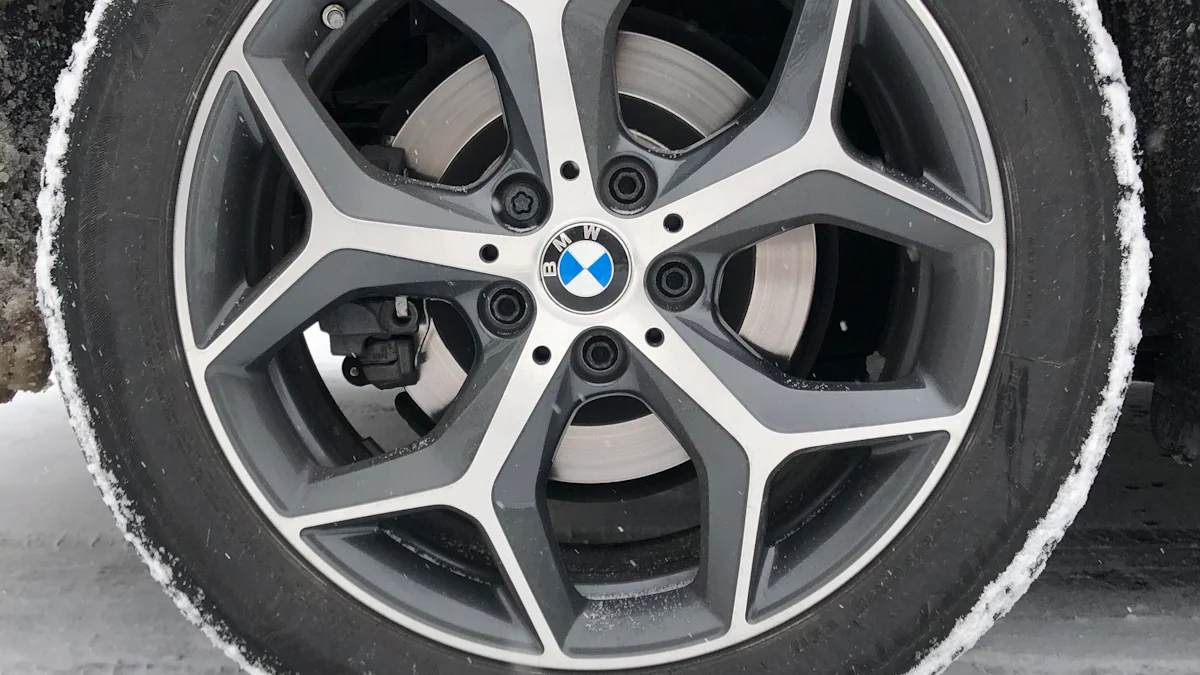
When choosing a 17×7 steel wheel, you might wonder how it balances aesthetics with practicality. While steel wheels are often seen as functional rather than flashy, they still offer design and practical benefits that cater to specific needs.
Design Options for Steel Wheels
Steel wheels typically feature a straightforward and utilitarian design. They often come in simple spoke patterns with a painted or silver finish. This minimalist look may not turn heads like alloy wheels, but it serves a purpose. The simplicity makes steel wheels easier to clean and maintain, which is a big plus for drivers who prioritize functionality over appearance.
Unlike alloy wheels, which boast a wide range of intricate designs, steel wheels focus on durability and practicality. Their robust construction means they can handle rough conditions without compromising their structure. If you’re someone who values reliability over aesthetics, steel wheels are a smart choice.
Quick Insight: Steel wheels may not offer the same variety of designs as alloy wheels, but their no-nonsense appearance complements older or entry-level vehicles perfectly.
For those who want to enhance the look of their steel wheels, accessories like hubcaps or wheel covers can add a touch of style. These add-ons come in various designs and finishes, allowing you to customize your wheels without sacrificing their durability.
Practical Considerations
Steel wheels excel in practicality, making them a favorite for drivers who face challenging road conditions. Their strength and durability make them ideal for off-road adventures, winter driving, or areas with rough terrain. Unlike alloy wheels, which can crack under impact, steel wheels tend to bend. This characteristic allows for easier repairs, saving you time and money.
Another practical advantage is their resistance to damage from road salt and deicers. This makes steel wheels a reliable option for winter driving. Pairing them with winter tires ensures maximum safety and performance during colder months.
Steel wheels also require less maintenance compared to alloy wheels. Their simple design hides dirt and grime better, and cleaning them is a breeze. If you’re looking for a low-maintenance solution, steel wheels are hard to beat.
Pro Tip: Keep a separate set of steel wheels for seasonal use. This not only extends the life of your primary wheels but also saves you the hassle of frequent tire changes.
In terms of cost, steel wheels are more affordable than alloy wheels. Their straightforward manufacturing process and use of cost-effective materials make them a budget-friendly option. Despite their lower price, they deliver exceptional durability and reliability, ensuring long-term value.
By focusing on both design and practicality, steel wheels strike a balance that appeals to drivers who value function over form. Whether you’re navigating snowy roads or tackling rugged trails, steel wheels provide the dependability you need.
FAQs
When it comes to choosing the best 17×7 steel wheel for your car, you might have some questions. Below, you’ll find answers to the most common queries to help you make an informed decision.
1. What vehicles are compatible with 17×7 steel wheels?
17×7 steel wheels fit a wide range of vehicles, including sedans, SUVs, and light trucks. To ensure compatibility, check your car’s specifications in the owner’s manual or consult a trusted mechanic. Pay attention to factors like bolt pattern, offset, and backspacing to avoid fitment issues.
2. How do I determine my car’s bolt pattern?
The bolt pattern refers to the number of lug holes and the diameter of the circle they form. For example, a 5×114.3 bolt pattern means five lug holes arranged in a 114.3mm circle. You can find this information in your car’s manual or by measuring it yourself. If you’re unsure, ask a professional for assistance.
3. Are steel wheels better than alloy wheels?
Steel wheels and alloy wheels serve different purposes. Steel wheels are stronger, more durable, and cost-effective. They perform well in harsh conditions like winter roads or off-road trails. Alloy wheels, on the other hand, are lighter and more visually appealing but less resistant to damage. Your choice depends on your driving needs and preferences.
4. Can I use steel wheels year-round?
Yes, you can use steel wheels year-round. However, they are particularly popular for winter driving due to their durability and resistance to road salt and deicers. If you prefer a more stylish option for summer, you can switch to alloy wheels during warmer months.
5. Do steel wheels rust easily?
Steel wheels can rust if the protective paint layer gets damaged. Regular maintenance, such as cleaning and repainting when necessary, prevents rust. Applying a rust-resistant coating or wax adds an extra layer of protection, especially in areas with harsh winters.
6. What is the lifespan of a steel wheel?
Steel wheels are built to last. With proper care, they can serve you for many years. Their durability makes them a reliable choice for drivers who want long-term value. Regular inspections and maintenance ensure they stay in good condition.
7. Are steel wheels heavier than alloy wheels?
Yes, steel wheels are heavier than alloy wheels. The added weight increases stability, especially in challenging conditions like snow or gravel roads. However, it may slightly reduce fuel efficiency and acceleration. For many drivers, the trade-off is worth it for the added durability and safety.
8. Can I repair a bent steel wheel?
Yes, you can repair a bent steel wheel in most cases. Unlike alloy wheels, which often crack under impact, steel wheels tend to bend. A professional mechanic can usually straighten the wheel, saving you the cost of a replacement.
9. Do I need special lug nuts for steel wheels?
Some vehicles require specific lug nuts for steel wheels. Check your car’s manual or consult a professional to ensure you have the right type. Using the correct lug nuts ensures a secure fit and prevents potential safety issues.
10. Where can I buy high-quality 17×7 steel wheels?
You can purchase high-quality 17×7 steel wheels from reputable manufacturers like BRS Auto Parts. They specialize in durable and reliable steel wheels that meet industry standards. Always research the brand and read reviews to ensure you’re getting a product that delivers value and safety.
Quick Tip: When shopping for steel wheels, prioritize quality over price. A well-made wheel not only lasts longer but also enhances your car’s performance and safety.
By addressing these common questions, you’ll feel more confident in selecting the right 17×7 steel wheel for your car. If you have additional concerns, don’t hesitate to consult a professional or reach out to trusted manufacturers for guidance.
Choosing the right 17×7 steel wheel for your car involves focusing on key factors like compatibility, durability, and performance. Always ensure the wheel matches your car’s specifications, including bolt pattern, offset, and size, to guarantee safety and optimal handling. Steel wheels stand out for their strength and practicality, making them ideal for winter driving or rugged terrains. To get the best value, research trusted brands like BRS Auto Parts and maintain your wheels regularly. By considering these aspects, you can confidently select a reliable and cost-effective option that meets your needs.
FAQ
Are steel wheels suitable for long-distance driving?
Absolutely! Steel wheels are a reliable choice for long road trips. Their robust construction handles varying road conditions with ease. Unlike alloy wheels, steel wheels are less prone to damage from potholes or curbs. If an issue arises, repairs are straightforward and cost-effective. This durability ensures you can travel confidently without worrying about wheel-related hiccups.
Is durability a major advantage of steel wheels compared to alloy wheels?
Yes, durability is one of the standout features of steel wheels. Cracking a steel wheel is nearly impossible, and bending one requires significant force. This makes them ideal for rough terrains or challenging driving conditions. To maintain their longevity, keep the paint layer intact to prevent rust. With proper care, steel wheels can last for years, offering unmatched reliability.
What are the advantages of steel wheels in terms of strength and durability?
Steel wheels excel in strength and durability. They resist bending or cracking when hitting potholes or curbs, making them perfect for off-road adventures or harsh road conditions. Their simpler manufacturing process and lower material costs also make them more affordable than alloy wheels. Additionally, if they sustain damage, repairs are easier and cheaper, adding to their practicality.
Which is better: Alloy wheels or steel wheels?
The answer depends on your driving needs. Steel wheels are affordable, durable, and ideal for tough conditions like winter roads or off-road trails. Alloy wheels, on the other hand, are lightweight and enhance performance, offering a sporty drive. If you prioritize strength and cost-effectiveness, steel wheels are the way to go. For those seeking style and agility, alloy wheels might be a better fit.
Can I use steel wheels year-round?
Yes, you can use steel wheels all year. They perform exceptionally well in winter due to their resistance to road salt and deicers. While they may not have the sleek look of alloy wheels, their practicality and durability make them a dependable option for year-round use. If aesthetics matter during summer, consider switching to alloy wheels for a seasonal upgrade.
Do steel wheels rust easily?
Steel wheels can rust if their protective paint layer gets damaged. Regular maintenance, such as cleaning and repainting when necessary, prevents rust from forming. Applying a rust-resistant coating or wax adds an extra layer of protection, especially in areas with harsh winters. With proper care, you can keep your steel wheels looking and performing great for years.
Are steel wheels heavier than alloy wheels?
Yes, steel wheels are heavier. This added weight increases stability, especially on snowy or gravel roads. While it may slightly reduce fuel efficiency and acceleration, the trade-off is worth it for many drivers. The extra weight enhances safety and durability, making steel wheels a practical choice for challenging driving conditions.
Can I repair a bent steel wheel?
Yes, repairing a bent steel wheel is usually possible. Unlike alloy wheels, which often crack under impact, steel wheels tend to bend. A professional mechanic can straighten the wheel, saving you the cost of a replacement. This repairability adds to the long-term value of steel wheels.
Are steel wheels a good choice for off-road driving?
Steel wheels are an excellent choice for off-road driving. Their strength and resistance to damage make them ideal for rugged terrains. They can handle impacts from rocks, uneven surfaces, and other obstacles without cracking. If you’re an off-road enthusiast, steel wheels provide the durability and reliability you need.
Where can I buy high-quality 17×7 steel wheels?
You can find high-quality 17×7 steel wheels from trusted manufacturers like BRS Auto Parts. They specialize in durable and reliable steel wheels that meet industry standards. Always research the brand and read reviews to ensure you’re investing in a product that delivers both safety and value.
- Posted In:General

